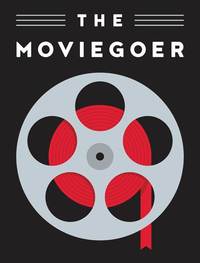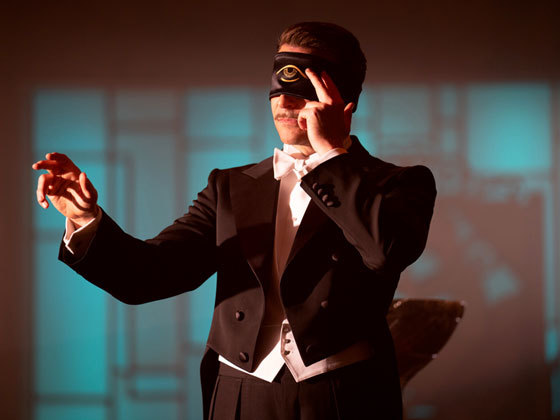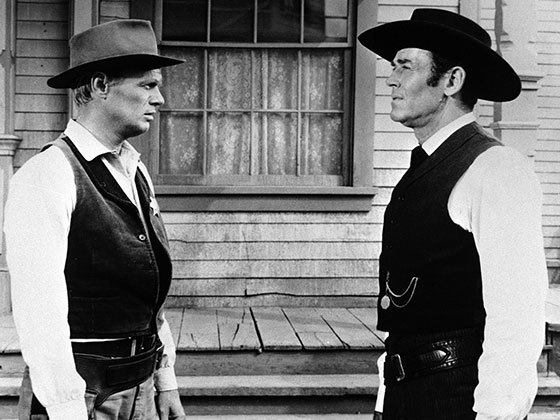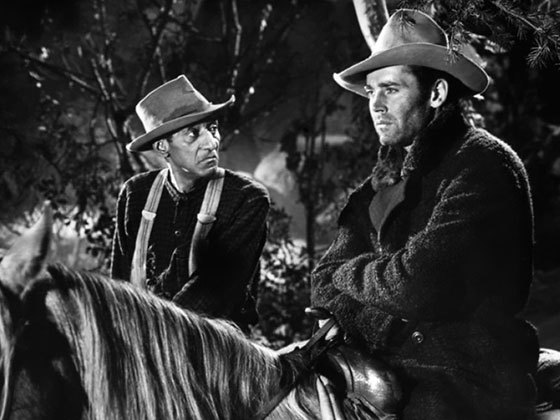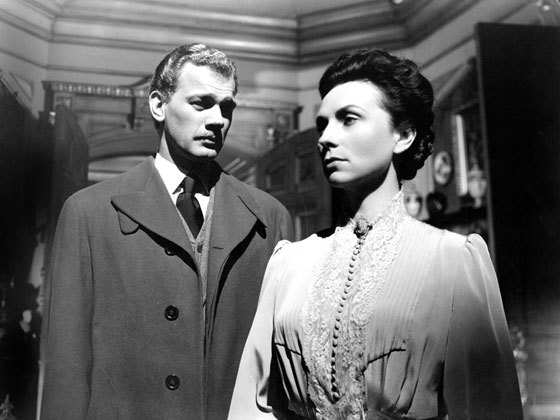By Terrence Rafferty
With Deborah Kerr as the tormented governess, director Jack Clayton’s 1961 film combines barely-seen and unseen specters to conjure an aura of intense and entangling evil.
The Moviegoer, a new biweekly feature from Library of America, showcases leading film critics revisiting memorable films to watch or watch again, all inspired by classic works of American literature.
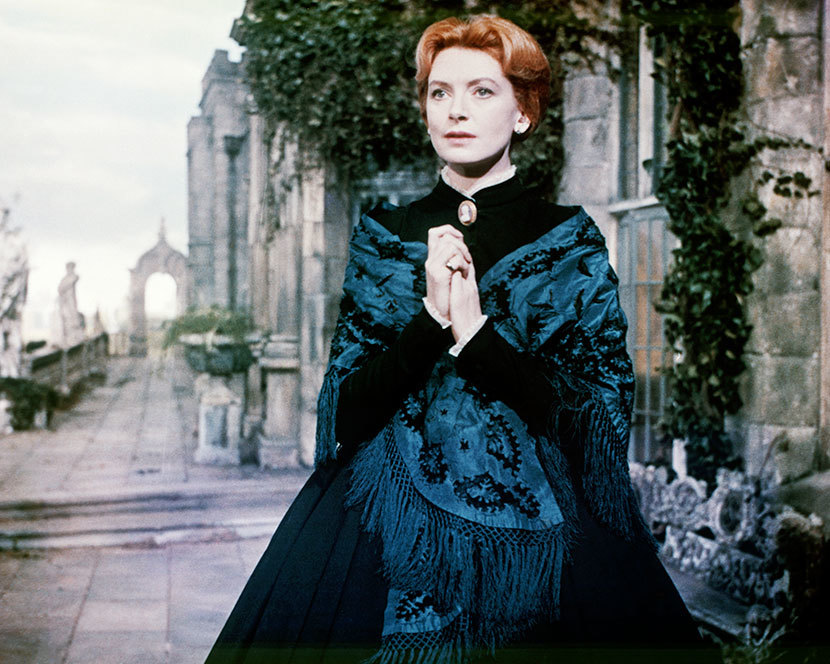
It began, Henry James said, as a mere wisp of story, a “shadow of a shadow.” On a winter day in an old English country house in 1895, the Archbishop of Canterbury (of all people) told the writer a sketchy tale about “a couple of small children in an out-of-the-way place, to whom the spirits of certain ‘bad’ servants, dead in the employ of the house, were believed to have appeared with the design of ‘getting hold’ of them.” Three years later, that suggestive fragment of anecdote had turned into a novella called “The Turn of the Screw,” which first appeared, in twelve installments, in the American magazine Collier’s Weekly in 1898; in 1950, the bad servants manifested themselves in another form, as characters in a play called The Innocents, by William Archibald; they appeared once more in 1954, in an opera by Benjamin Britten; and seven years later a film, directed by Jack Clayton and also called The Innocents, brought them to life again. Spirits, evil ones especially, do tend to linger, and James’s nasty apparitions have been hardier than most. “The Turn of the Screw” transformed these shadows of shadows into fully imagined presences on the page, the stage play gave them flesh, and the movie takes them home to the permanent in-between that is the natural state of ghosts, of images on film, and of Henry James’s sense of story.
| READ THE STORY |
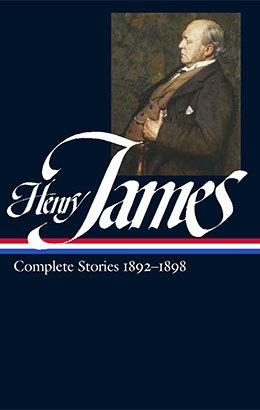 |
| Henry James: Complete Stories 1892–1898 |
The ghosts in question—“my hovering prowling blighting presences, my pair of abnormal agents,” James called them, with a touch of pride—are Peter Quint, who was in life a valet, and Miss Jessel, who was a governess. In The Innocents these spectral figures (incarnated, mutely, by Peter Wyngarde and Clytie Jessop) appear onscreen infrequently, and usually at some distance. But, as in the book, they are constantly present, and loom very large, in the mind of Miss Jessel’s successor, an inexperienced young governess—unnamed in the story, named Miss Giddens in the film—from whose point of view we see everything that happens, or seems to happen, in this strange, sad tale. The new governess, played by Deborah Kerr, has got it in her head that her small charges, Miles (Martin Stephens) and Flora (Pamela Franklin), are in the thrall of the dead servants: that Quint and Miss Jessel were, and remain, malign influences on Flora and especially Miles, and that the children still, somehow, see them. Whether they do or not, Miss Giddens certainly does.
The nature of the servants’ presumed malignity is never specified, either in “The Turn of the Screw” or The Innocents. “What, in the last analysis, had I to give the sense of?” James wrote in 1908, in the preface to the New York Edition of the story. “Of their being, the haunting pair, capable, as the phrase is, of everything—that is of exerting, in respect to the children, the very worst action small victims so conditioned might be conceived as subject to.” And to convey “this utmost conceivability,” he decided, it was best to be vague. “Only make the reader’s general vision of evil intense enough . . . and his own experience, his own imagination, his own sympathy (with the children) and horror (of the false friends) will supply him quite sufficiently with all the particulars. Make him think the evil, make him think it for himself, and you are released from weak specifications.” This is exactly what happens to the reader of “The Turn of the Screw,” and it is also, in a sense, the experience of James’s young governess, who thinks the evil for herself with an imaginative ferocity that becomes, over a long country summer, a malignity of its own.
And to a remarkable degree The Innocents manages to recreate on the screen that delicate Jamesian play of perception: it makes us doubt what we see, and enlarge what we imagine. The film is in black and white, which is always good for ghost stories, and CinemaScope—which is less obviously conducive to the telling of this sort of haunted-house tale. Clayton used to tell the story that he and his great cinematographer, Freddie Francis, didn’t realize until a week before shooting that they were contractually obligated to make the picture in ’Scope. As Christopher Frayling reports in his well-researched BFI Film Classics book on _The Innocents (2013), they probably had at least a couple of months to figure out how to make the extreme widescreen format work for this creepily intimate chamber drama, but it must have been a challenge. In the event, though, they used it so inventively that it seems inevitable. The CinemaScope image leaves a lot of empty space for the viewer to fill with dark imaginings, which is just what James wanted. Most ghost stories are claustrophobic, stifling; “The Turn of the Screw” is meant to expand in the fevered, fearful minds of its audience. It does, and so does The Innocents.
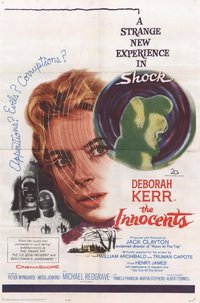
For the screenplay, Clayton turned first to the playwright William Archibald, but felt that his treatment was too stagey and brought in John Mortimer to make revisions; for the final drafts, he settled on Truman Capote, who in novels like Other Voices, Other Rooms and stories like “Shut a Final Door” had shown a talent for the sort of misty ominousness this story requires. (The finished film credits Archibald and Capote as screenwriters, “with additional scenes and dialogue by John Mortimer”; Clayton always said that the script was ninety percent Capote.) The movie dispenses with the novella’s framing device—a rather traditional gentlemen-swapping-stories-by-the-fire ghost story opening—and instead begins on a blank screen and a small voice singing a mournful song. (It sounds like a child, but the voice is actually that of the wonderful Scottish folksinger Isla Cameron, who appears briefly in the film as the kitchen maid.) The first image is of Miss Giddens, quietly crying in closeup against a black background, with her hands clasped in prayer; she speaks, apparently to herself, of her love for the children. The story is constructed as her extended reminiscence, an apologia composed in a dark night of the soul.
Kerr manages throughout to suggest a sort of muted hysteria in Miss Giddens, a persistent nervousness, an underlying sense of discomfort in the world. In her job interview with the children’s absentee guardian, a dapper uncle played with fine disdain by Michael Redgrave, Miss Giddens seems oddly flustered, perhaps surprised by an inappropriate attraction to this impressive man. The faint but distinct erotic subtext of the scene gives some support to the idea that the sheltered young lady, the daughter of a country parson, is, as Edmund Wilson famously argued, “a neurotic case of sex repression” and that the story as a whole is “a study in morbid psychology”—that the “ghosts” she sees are merely projections of her own desires. Kerr’s delicate performance, like James’s studiously neutral portrayal of the governess in “The Turn of the Screw,” allows that possibility but never insists on it. This story, on the screen as on the page, is about the effects of evil, which can be seen, rather than its causes, which cannot. No “weak specifications” for either James or the faithful filmmakers of The Innocents. The terror of this story is pure.
Despite some enthusiastic reviews—notably that of Pauline Kael in Film Quarterly_—the film died at the box office in both the U.S. and the U.K. (There were more than a few uncomprehending reviews, too, which in Kael’s view scared off the educated audience that might have embraced the movie.) But the film’s stature has grown in the half-century of its afterlife. _The Innocents remains among the small handful of great ghost stories on film, and it belongs, too, in the even more select company of movie adaptations that are more than a shadow of a shadow of the major works of literature that inspired them. When Henry James wrote of “The Turn of the Screw” that “the study is of a conceived ‘tone,’ the tone of suspected and felt trouble, of an inordinate and incalculable sort—the tone of tragic, yet of exquisite, mystification,” he might have been describing The Innocents. His spirit is in it, hovering.
BFI trailer for The Innocents (3:08)
The Innocents (1961). Directed by Jack Clayton. Written by William Archibald and Truman Capote, with additional scenes and dialogue by John Mortimer, based on Henry James’s “The Turn of the Screw” and Archibald’s stage adaptation, The Innocents. With Deborah Kerr, Megs Jenkins, Michael Redgrave, Martin Stephens, Pamela Franklin, Peter Wyngarde, and Clytie Jessop.
Buy the Criterion Blu-ray • Buy the Criterion DVD
Terrence Rafferty is the author of The Thing Happens: Ten Years of Writing about the Movies. He is a frequent contributor to The New York Times, The Atlantic, and DGA Quarterly.
